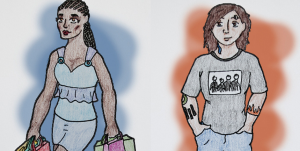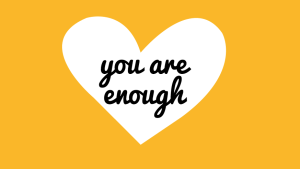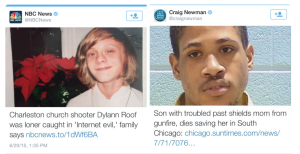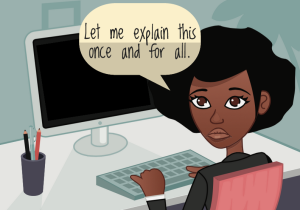Janaya Khan: With the Trump administration coming into power, I’ve heard many people, and especially white people ask, “What can I do?” Well, the movement answered.
It’s time to finally start having those challenging conversations with your friends, your family members, and your coworkers.
Here are the five roadblocks you’ll encounter and probably already have:
- Derailment: “What about Black-on-Black crime?”
- Minimization: “I don’t think they meant it that way when they said it.”
- Reduction: “It’s not like Black people are the only people dying.”
- Tokenism: “My boyfriend is Black.”
- Hurt: “I feel really unsafe having this conversation right now.”
Now that we’ve identified what some of these strategies are that people use to shut conversations down, here’s how we get around them.
The next time that someone says, “What about Black-on-Black crime?” Ask them, “Are Black lives not worth protecting?”
The next time that someone says, “I don’t think they meant it that way when they said that,” push back and remind them of intention versus impact.
The next time that someone says, “It’s not like Black people are the only people dying,” remind them that no, they aren’t, but Black people are disproportionately dying in this country and all over the world. Can we at least talk about that?
The next time that someone says, “My boyfriend is Black,” remind them that having a Black boyfriend doesn’t mean that you’re not racist, and in fact, the idea that you wouldn’t be racist because you have a Black boyfriend is in fact racist.
And the next time that someone says, “I feel really unsafe having this conversation,” ask them, “Are you feeling unsafe or feeling uncomfortable?” Now, more than ever, we need to have these kinds of courageous conversations, so that we can look to change and grow and intervene where it’s necessary.
It’s important to remember: The movement can’t grow unless you grow with it.




















